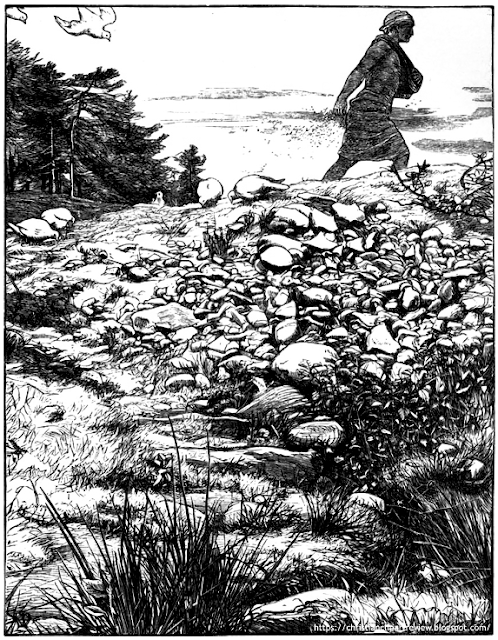Easter begins with a midnight service; but on the evening before, samples of the principal dishes to be used on the following day are brought into the church or placed on the outside steps, in order that they may share the blessing. Among these, truncated pyramids of curds and colored eggs are conspicuous. The streets are deserted, except in the neighborhood of the sacred buildings ; but these are filled to overflowing on this one occasion in the year, so that in the larger towns late comers must be content to view the ceremonies through the glass screen with which the more important churches are provided. At St. Petersburg all the higher officials are expected to attend the Imperial Chapel, which is not large enough to contain a tenth of their number. The rest walk up and down, and form a kind of conversazione outside. All through Passion Week the services have been gloomy, the altar has been denuded of its ornaments, and the priests have appeared only in black robes. Even on Easter Eve only such lamps are lighted as are absolutely necessary to allow the worshipers to take their places in an orderly way. As soon as midnight is past the priests appear in white garments, intoning the Easter hymn; and, when the tones are heard, the altar and the whole building are brilliantly lighted, as suddenly as the means at the disposal of the authorities will permit. The exterior of the building is also illuminated, and where but a few minutes before all was darkness and gloom there is now a little island of light. The men are dressed in their best clothes, the women are all in white. After some ceremonies, the procession of priests passes down the aisle and round the exterior of the building. Everywhere the greeting " Christ hath risen," with the response "Yea, He hath risen," may be heard; and the customary three kisses are given. Lent is over, and Easter has begun. The service, including the blessing of the food and the first Easter Mass, lasts till between two and three; after it is finished, the families return to their homes to break their long fast, and invite such of their friends as they may meet to accompany them. A large table is spread in the greatest room with all the delicacies and customary dishes of the season. In the good old times it was expected that the higher nobles should keep it fully furnished till Whitsuntide, and every one who entered the house was welcome to eat what he would standing by it ; but this custom has fallen into disuse, except perhaps in the most distant districts.
The peasantry, hospitable as they are always, and more especially at this season of the year, cannot, of course, indulge in such excessive display; but they have observances of their own, particularly in Southern Russia. Before he goes to church with all his family, the countryman must take care that some log is left burning in the stove, or some lamp before the image of a saint, at which the Easter candles can be lighted. To forget this is not only to bring ill luck upon the house, but also to show oneself religiously indifferent ; in short, to be a most objectionable kind of person. Yet even for this sin there is forgiveness. . .
Whenever a few compatriots are gathered together, when the Russian Easter comes, whatever their political or religious opinions may be, the old table will be spread, the old greetings will be exchanged, and the old dishes as far as possible reproduced or imitated; for, quite apart from the religious aspect of the festival, Easter is for the Russian what Christmas is for the German -- above all things, a family gathering. Both are celebrated with pomp at Court, both are duly commemorated in church, but it is not in these facts that their attraction consists. They are loved and ob- served because they recall memories of childhood -- and because they furnish a yearly opportunity of renewing old friendships and making up new differences.

